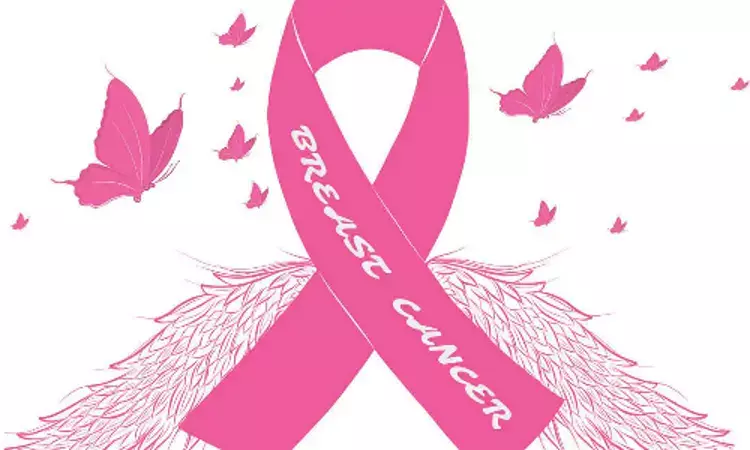- Home
- Medical news & Guidelines
- Anesthesiology
- Cardiology and CTVS
- Critical Care
- Dentistry
- Dermatology
- Diabetes and Endocrinology
- ENT
- Gastroenterology
- Medicine
- Nephrology
- Neurology
- Obstretics-Gynaecology
- Oncology
- Ophthalmology
- Orthopaedics
- Pediatrics-Neonatology
- Psychiatry
- Pulmonology
- Radiology
- Surgery
- Urology
- Laboratory Medicine
- Diet
- Nursing
- Paramedical
- Physiotherapy
- Health news
- Fact Check
- Bone Health Fact Check
- Brain Health Fact Check
- Cancer Related Fact Check
- Child Care Fact Check
- Dental and oral health fact check
- Diabetes and metabolic health fact check
- Diet and Nutrition Fact Check
- Eye and ENT Care Fact Check
- Fitness fact check
- Gut health fact check
- Heart health fact check
- Kidney health fact check
- Medical education fact check
- Men's health fact check
- Respiratory fact check
- Skin and hair care fact check
- Vaccine and Immunization fact check
- Women's health fact check
- AYUSH
- State News
- Andaman and Nicobar Islands
- Andhra Pradesh
- Arunachal Pradesh
- Assam
- Bihar
- Chandigarh
- Chattisgarh
- Dadra and Nagar Haveli
- Daman and Diu
- Delhi
- Goa
- Gujarat
- Haryana
- Himachal Pradesh
- Jammu & Kashmir
- Jharkhand
- Karnataka
- Kerala
- Ladakh
- Lakshadweep
- Madhya Pradesh
- Maharashtra
- Manipur
- Meghalaya
- Mizoram
- Nagaland
- Odisha
- Puducherry
- Punjab
- Rajasthan
- Sikkim
- Tamil Nadu
- Telangana
- Tripura
- Uttar Pradesh
- Uttrakhand
- West Bengal
- Medical Education
- Industry
Immunotherapy prior to surgery may help treat high-risk breast cancer

New Haven, Conn. -- Researchers at Yale Cancer Center (YCC) have found in a new study that women with high-risk HER2-negative breast cancer treated before surgery with immunotherapy, plus a PARP inhibitor with chemotherapy, have a higher rate of complete eradication of cancer from the breast and lymph nodes compared to chemotherapy alone.
The findings of the study were presented at the American Association for Cancer Research (AACR) virtual annual meeting.
"The results provide further evidence for the clinical value of immunotherapy in early stage breast cancer and suggest new avenues to use these drugs, particularly in estrogen receptor (ER)-positive/HER2-negative breast cancers," said Lajos Pusztai, M.D., Professor of Medicine (Medical Oncology) and Director of Breast Cancer Translational Research at YCC. Pusztai presented the results of the study today during a plenary session at the AACR meeting.
Physicians treat some women with HER-2 negative breast cancer with chemotherapy before surgery, hoping to shrink the tumor and to guide treatment after the operation. In a subgroup of women, this pre-surgical treatment destroys any evidence of the tumor, achieving what is called "pathologic complete response" (pCR), a condition that typically heralds increased overall survival.
Investigators in the I-SPY 2 clinical trial now report that for women with HER2-negative breast cancer who are treated before surgery, an average pCR rate rises from 22% among those given standard-of-care chemotherapy to 37% in those who received the immunotherapy drug durvalumab, plus the PARP inhibitor drug olaparib, in addition to chemotherapy.
Durvalumab is a checkpoint inhibitor immunotherapy, engineered to unleash immune system T cells against tumors by inhibiting a protein on the surface of T cells called PD-1. PARP inhibitor drugs such as olaparib aim to the ability of impair cancer cells to repair DNA damage caused by chemotherapy.
Overall, 73 patients in the experimental arm were given durvalumab, olaparib, and paclitaxel chemotherapy followed by doxorubicin/cyclophosphamide chemotherapy, while 229 patients in the control arm received the standard treatment of paclitaxel plus doxorubicin/ cyclophosphamide. Researchers analyzed results for all HER2-negative patients, as well as for triple-negative (TNBC) and ER positive subsets. Women with triple negative cancer who received the combination treatment saw a pCR rate of 47%, compared to those given the standard chemotherapy with a pCR rate of 27%. Patients with estrogen-positive/HER2-negative cancer in the experimental arm experienced a pCR rate of 28%, versus 14% for those in the control arm. Patients in the experimental arm, however, were also more likely to experience grade 3 serious adverse events--58% in the experimental arm compared to 41% in the control arm.
Immune-rich cancers showed higher pCR rates in all subtypes and in both treatment arms, but the investigators discovered biomarkers that potentially could identify patients who are most likely to benefit from treatment with durvalumab and olaparib. Among estrogen-positive/HER2-negative cancers, the MammaPrint ultra-high subset benefited the most from the combination, their pCR rate reached 64%. In TNBC, tumors with low CD3/CD8 ratio, high Macrophage/Tcell-MHC class II ratio, and high proliferation appear to have benefited preferentially from adding durvalumab and olaparib to paclitaxel.
I-SPY (Investigation of Serial Studies to Predict Your Therapeutic Response with Imaging and Molecular Analysis) 2 is a multicenter phase 2 trial to evaluate novel agents as pre-surgical therapy for breast cancer. The study is a collaboration among 20 U.S. cancer research centers, the U.S. Food and Drug Administration and the Foundation for the National Institutes of Health Cancer Biomarkers Consortium. Lead support for I-SPY 2 came from the Quantum Leap Healthcare Collaborative
Hina Zahid Joined Medical Dialogue in 2017 with a passion to work as a Reporter. She coordinates with various national and international journals and association and covers all the stories related to Medical guidelines, Medical Journals, rare medical surgeries as well as all the updates in the medical field. Email: editorial@medicaldialogues.in. Contact no. 011-43720751
Dr Kamal Kant Kohli-MBBS, DTCD- a chest specialist with more than 30 years of practice and a flair for writing clinical articles, Dr Kamal Kant Kohli joined Medical Dialogues as a Chief Editor of Medical News. Besides writing articles, as an editor, he proofreads and verifies all the medical content published on Medical Dialogues including those coming from journals, studies,medical conferences,guidelines etc. Email: drkohli@medicaldialogues.in. Contact no. 011-43720751


